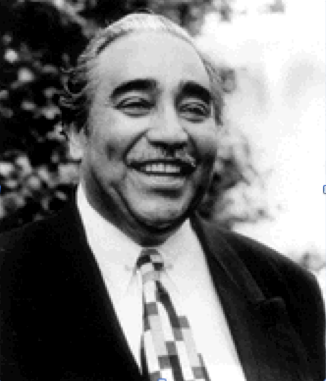All Politics Is Local
 Columbia Political Review: You got a lot of props for brokering Andrew Cuomo’s withdrawal from the Democratic gubernatorial primary and saving face for the Democratic party. What would have happened to New York’s Democratic party if Cuomo had not withdrawn?
Congressman Charles Rangel: All I know is that we got the support of the Kennedys, the Clintons, and the Cuomos and we’re moving ahead. We’re moving ahead, we’re closing the gap, and everything is working out well. I don’t have the luxury to focus on what would have happened.
Columbia Political Review: You got a lot of props for brokering Andrew Cuomo’s withdrawal from the Democratic gubernatorial primary and saving face for the Democratic party. What would have happened to New York’s Democratic party if Cuomo had not withdrawn?
Congressman Charles Rangel: All I know is that we got the support of the Kennedys, the Clintons, and the Cuomos and we’re moving ahead. We’re moving ahead, we’re closing the gap, and everything is working out well. I don’t have the luxury to focus on what would have happened.
CPR: You were uniquely qualified to act as a negotiator between the McCall and Cuomo camps. As an elder statesman of New York’s congressional delegation, do you see your hand in future Democratic competitions?
Rangel: I play my hand as it’s dealt to me and I have no idea what the future holds in terms of whether or not I can make a contribution.
CPR: With candidates like Georgia’s Denise Majette and Ron Kirk from Texas on the rise, there’s a lot of talk about a new type of black politician that could unseat people like Georgia’s defeated incumbent Cynthia McKinney. Is this something new?
Rangel: There’s a new type of white politician, a new type of black politician. Wherever white incumbents or black incumbents are in trouble there are always new and young people that are there to challenge them and I really think that this whole idea that the press is talking about—Ivy League young blacks running against old-time blacks—is just absolutely ridiculous and has no merit to it at all. The problems that [Alabama Democratic incumbent Earl] Hilliard and McKinney had were with their black constituents. And the fact that people saw fit to send money into the district just highlights the problems that the constituents that did vote had with them.
CPR: So it’s particular to each incumbent and each district.
Rangel: Yes, but it’s not any black thing. I ask the press, “Whaddaya talkin’ about?” And they say, “We got this young fellow who didn’t win in Newark. What the hell? [Newark City Councilman Cory Booker] came from the Ivy League and he was sleeping in public housing and he lost. So what’s the story?” Suppose he was white and the incumbent was a white mayor? What would the story be? The candidates and incumbents reflect their constituents; they don’t reflect where they went to school. So I don’t know where this story comes from, but a lot of reporters are calling me about this new generation black. And it’s just as exciting as the new generation whites. Or Hispanics. Or whatever.
CPR: Do you think there is a particular mold for each of those?
Rangel: Hell, no! The mold is the district.
CPR: With the resignation of Oklahoma’s J.C. Watts, there are no black Republicans elected to national office. Why do you think that is?
Rangel: They got one Jew in the whole House of Representatives after Ben Gilman [of New York] left and they had one black and he’s gone. But if you take a look at the Republican Party as reflected in the House of Representatives, there is no diversity. And I don’t think he had a black-white issue with the Republicans. It’s just that he didn’t believe he got the attention that the title they gave him deserved. I know he was disappointed in the way he was treated.
CPR: Is there a trend wherein black voters feel neglected by the Republican Party?
Rangel: If the Republican Party really had any sense in the long run, they would be making an appeal to blacks and Hispanics on a national level the same way [Governor] Pataki’s trying to do locally.
CPR: And they’re just not doing that at all?
Rangel: No, they don’t even try.
CPR: If the Democrats retake the House, you’ll be chairman of the Ways and Means Committee. Do you think the chances of that are good?
Rangel: Yes.
CPR: What will change in the national dialogue?
Rangel: Our priorities would be social security, health care, prescription drugs, and education. And Democratic principles would not take a back seat to war, tax cuts, prescription drugs being handled by pharmaceuticals, the privatization of social security.
CPR: Is the President’s agenda focused too narrowly on foreign affairs?
Rangel: Forget foreign affairs! “War! War! War!” is no foreign affairs. I wish it was foreign affairs. That would mean involving other countries in the Middle East region as well as Europe. It would mean involving the United Nations. We don’t have foreign affairs. All we have is war talk.
CPR: Would the Democrats be able to curb the war talk if they retake the House?
Rangel: If there’s a threat to the United States of America, we want to deal with it. That’s not curbing it. But if there is no threat—if we just want to change regimes—then, hell, we can change regimes in Cuba, in the People’s Republic of China, in Libya. I mean, we got a lot of places we want to change regimes.
CPR: So Iraq shouldn’t be a priority?
Rangel: Not a priority for invasion, no.
